Rebordering the Archipelago — Asia Pacific Exchanges
Presented by the Centre of Visual Art, University of Melbourne association with the Asia Pacific Artistic Research Network (APARN), a joint project of Victorian College of the Arts, University of Melbourne and Indonesian Institute of the Arts, Yogyakarta. Supported by the Melbourne-Indonesia Research Partnership Program.
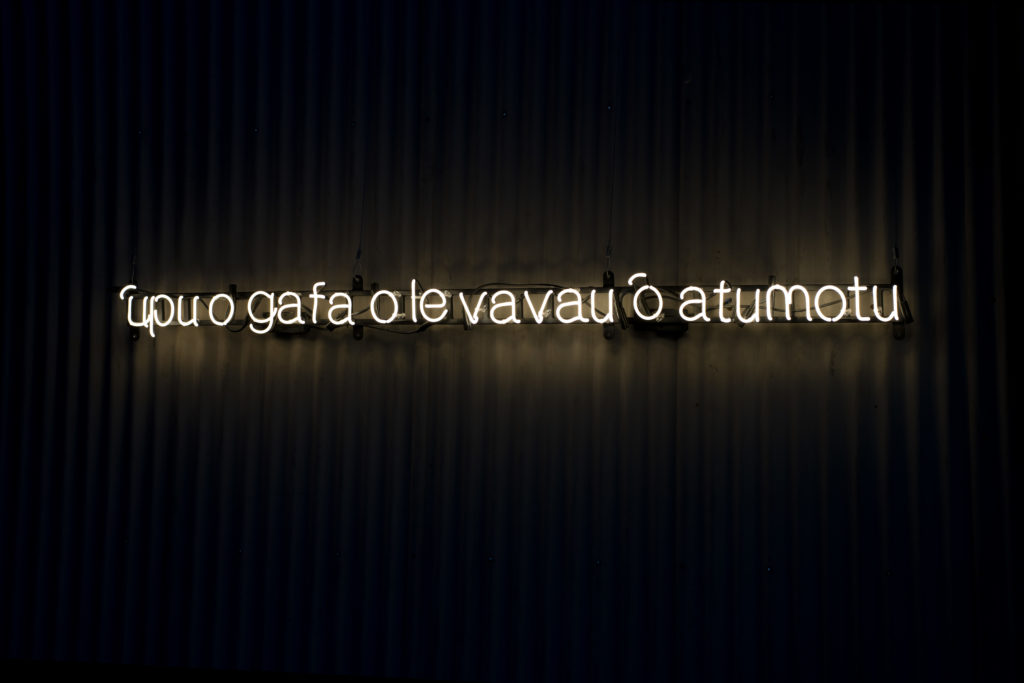
3–6 November 2020 #APARN2020
Featuring: Raqs Media Collective and Moonis Ahmad; Léuli Eshrāghi and Lisa Hilli, Victoria Hunt; Yuki Kihara and Natalie King; Nuraini Juliastuti and Sutanto Mendut; Helly Minarti and Tamarra, Ginoe Ojoy, Mark Teh, Iriano Yedija Petrus Awom
Click here for bios and information on speakers.
“The entire world is becoming an archipelago.”
Édouard Glissant
The efforts of oppressed peoples to survive in settler-colonial and postcolonial nations build on regional alliances that precede and exceed the colonial imaginary. Rethinking the “graph” in geography, the decolonial enterprise refuses the synoptic nationalism of territories bordered through colonial diagrams.
The late Tongan artist and scholar Epeli Hau’ofa proposed that the Pacific is best understood as a “sea of islands” — an oceanic continent, rather than small island states, sorted into the European categories of Micronesia, Melanesia and Polynesia (small, black, many). He notes that Pacific peoples have traversed the Pacific for hundreds of generations in tune with its winds and currents. Such critical interrogation of how taxonomies shape our intergenerational experience forms an important part of research methods in the arts today, with artists critiquing both extractive neo-colonial economies and isolating neoliberal aesthetics.
Thinking the politics of critical regionalism from Asia, Yogyakarta-based curator Brigitta Isabella has noted that after the 1955 Bandung Conference the associated Afro-Asian Writers Bureau were not able to perform the critique of the nation-state structures that governed the Non-Aligned Movement’s political imaginary, and this placed them on the back foot in relation to intergovernmental politics across the Indian Ocean. At a time when the policing of borders is being renewed across the world, and cultural nationalist state activism and fundamentalism rises again, it is timely to revisit the Asia Pacific’s legacies of rethinking borders and territories through artists and cultural workers.
APARN 2020 presents a range of panels and presentations as part of a regional exchange of artistic enquiry that can activate regional solidarity in our fields.
Artists of all disciplines, academics, students, and organisers who are actively involved in artistic research in the region — whether working inside an institution or independently — are also encouraged to join the network by registering for the APARN meeting on Friday 6th November. Attendance at this meeting requires a separate registration here. Please submit an expression of interest if you wish to share a five-minute presentation to the network, though you are welcome to participate without presenting.
A parallel First Peoples’ forum in the network (open to identifying participants only) will also meet on Friday 6th of November, convened by Dr Léuli Eshrāghi.
Affiliated with APARN 2020 is Archipelagic Encounters, a postgraduate research symposium and exchange between research students at McNally School of Fine Arts, Lasalle College of the Arts, Singapore, and University of Melbourne, Australia.
Schedule
Times given in AEDT (GMT +1100) and WIB (GMT +0700)
Tuesday 3rd November
5pm AEDT / 1pm WIB
Raqs Media Collective with Moonis Ahmad – introduced by Dr David Sequeira.
Wednesday 4th November
2pm AEDT / 10am WIB
Fluid States: Artistic Research in the Great Ocean Basin/Oceania
Dr Léuli Eshrāghi with Lisa Hilli and Victoria Hunt
5pm AEDT / 1pm WIB
Yuki Kihara in conversation with Professor Natalie King
6pm AEDT / 2pm WIB
Dr Nuraini Juliastuti and Sutanto Mendut
Thursday 5th November
11:45am AEDT / 8:45am WIB
CoVA/LaSalle Postgraduate Symposium: “Archipelagic Exchanges”
ft. public keynote addresses by Sopheap Pich and Prof. Claire Bishop
* Separate registration here.
Friday 6th November
1pm AEDT (GMT +1100) / 9am WIB (GMT +0700)
Opening Remarks: Professor Gunalan Nadarajan, Dean, Penny W. Stamps School of Art and Design at the University of Michigan
1:15pm AEDT / 9:15am WIB
Out of the Islands: Four Tangents
Convened by Dr. Helly Minarti with Tamarra, Ginoe Ojoy, Mark Teh, Iriano Yedija Petrus Awom
3pm AEDT / 11am WIB
Asia Pacific Artistic Research Network Meeting: convened by Dr Danny Butt (University of Melbourne) and Dr Kurniawan Adi Saputro (Indonesian Institute of the Arts Yogyakarta)
Presentations by practitioners, researchers and organisers in the region. Interested attendees (presenting or non-presenting participants) should register here to receive an invitation.
A First Peoples Research Forum will take place at 3.15pm AEDT/ 11.15am WIB on Friday 6th November convened by Dr Léuli Eshrāghi (Sāmoa). This session will focus on strengthening connections and sharing artistic research among First Peoples of Asia and of the Great Ocean Basin/Pacific. This is a closed session only for people who identify as and are claimed by Indigenous communities spanning these regions. Please select ‘I plan to attend the First Peoples forum’ on APARN Meeting form to register.
* Schedule is correct as of 21st October 2020 – registered guests will be informed of any changes.
TUESDAY 3rd NOVEMBER
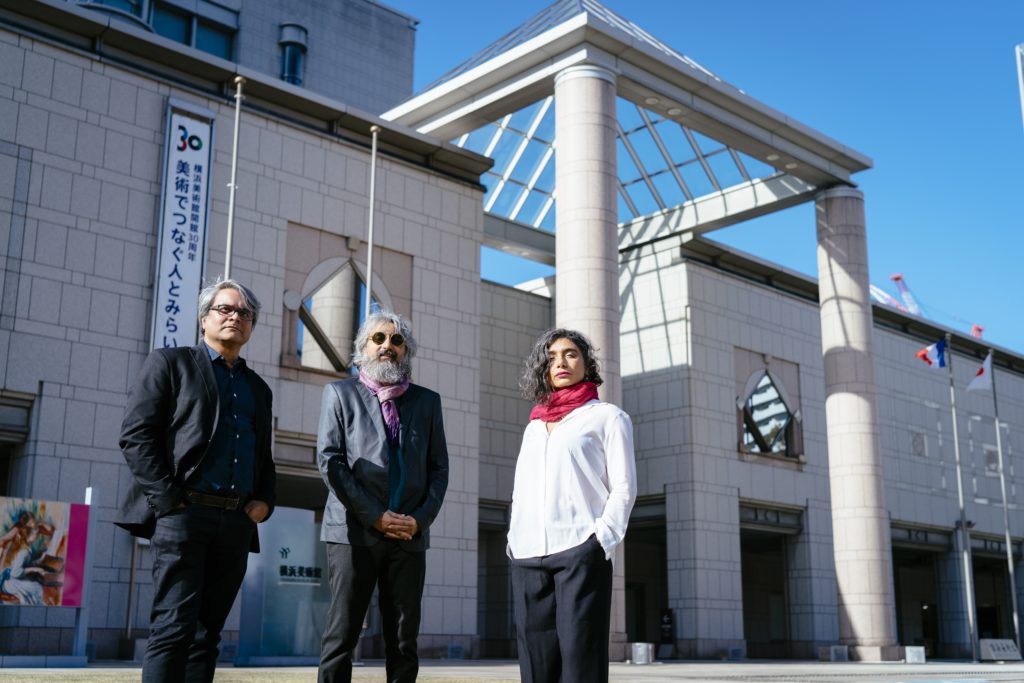
RAQS MEDIA COLLECTIVE
Raqs Media Collective was formed in 1992 by Jeebesh Bagchi, Monica Narula and Shuddhabrata Sengupta. The word “raqs” in several languages denotes an intensification of awareness and presence attained by whirling, turning, being in a state of revolution. Raqs Media Collective take this sense to mean ‘kinetic contemplation’ and a restless and energetic entanglement with the world, and with time. Raqs enlists objects such as an early-modern tiger-automata from Southern India, or a biscuit from the Paris Commune, or a cup salvaged from an ancient Mediterranean shipwreck, to turn them into devices to sniff and taste time. Devices are deployed in order to undertake historical subterfuge and fabulist adventures. Raqs practices across several media; making installation, sculpture, video, performance, text, lexica and curation. Their work finds them at the intersection of contemporary art, philosophical speculation and historical enquiry.
The members of Raqs Media Collective live and work in Delhi, India. In 2001, they co-founded the Sarai program at CSDS New Delhi and ran it for a decade, where they also edited the Sarai Reader series. They have shown extensively, as well as curated numerous exhibitions, including the Shanghai Biennale 2016, “Why Not Ask Again?”. They are the Artistic Directors for the forthcoming Yokohama Triennale 2020, “Afterglow”, where they are developing sources around toxicity, care, and luminosity of friendship with artists, and publics.
MOONIS AHMAD SHAH
Moonis Ahmad, born in Srinagar Kashmir is an interdisciplinary artist who works with hybrid practices involving mediums like video, photography, painting, programming and installation. He has shown his work at various exhibitions nationally and internationally such as his solo show “Atlas Holding the Heavens” at Vadhera Contemporary, New Delhi 2019; Sattlekamer, Bern, Switzerland 2018; Post-Graduate Gallery Elizabeth Murdoch Building, University of Melbourne 2018, Rohtas Gallery Lahore in (Dec-Jan) 2016-17; Group Show “Beyond Boundaries”, Auckland Art Fair 2018; “Sleepless Constellations” at 1×1 Gallery, Dubai 2017; Two person show, “Bureaucracies of Imagination” at Canvas Gallery Karachi, Group Show “A Million Mutinies Later – India at 70”, at Turner House, Cardiff, UK; Group show “New Wight Biennale”, UCLA, USA as Seh Rang Collective (Sept’16); Group show “Boxed Light” at Mars Gallery 2018, Melbourne amongst various others. He has also participated in various residential programmes such as “The Shifting Place: Understanding Territorialities: Identity, Place & Possession” at UNIDEE, Cittadelarte, Italy 2016, where he was fully funded by EU, 3 Month Residency at Stadtgalerie, Bern & HSLU, Luzern Switzerland organized by Pro Helvetia Swiss Arts Council. He also is a recipient of VCA Access Mentorship Program and VCA Academic Assistantship Programme at the University of Melbourne. He is a Doctoral Candidate at the University of Melbourne and is a recipient of Australian Graduate Research and Training Programme scholarship. Currently, he lives and works between Kashmir and Melbourne, Australia.
WEDNESDAY 4th NOVEMBER

DR LÉULI ESHRĀGHI
Dr Léuli Eshrāghi (Sāmoan, Persian, Cantonese) works across visual arts, curatorial practice and university research. Ia intervenes in display territories to centre Indigenous kin constellations, sensual and spoken languages, and ceremonial-political practices. Through performance, moving image, writing and installation, ia engages with Indigenous futurities as haunted by ongoing militourist and missionary violences that once erased faʻafafine-faʻatama from kinship and knowledge structures.
Ia contributes to growing international critical practice across the Great Ocean and North America through residencies, exhibitions, publications, teaching and rights advocacy. Eshrāghi is a board secretary of the Indigenous Curatorial Collective, the inaugural Horizon/Indigenous Futures postdoctoral fellow at Concordia University, a member of The Space Between Us SSHRC research partnership (2020-28) led by Dr Julie Nagam, an affiliate member of the Wominjeka Djeembana research lab at Monash University led by Dr Brian Martin, and a member of the Asia Pacific Artistic Research Network led by Dr Danny Butt at University of Melbourne and Kurniawan Adi Saputro at Indonesian Institute of the Arts Yogyakarta.
Photo by Rhett Hammerton
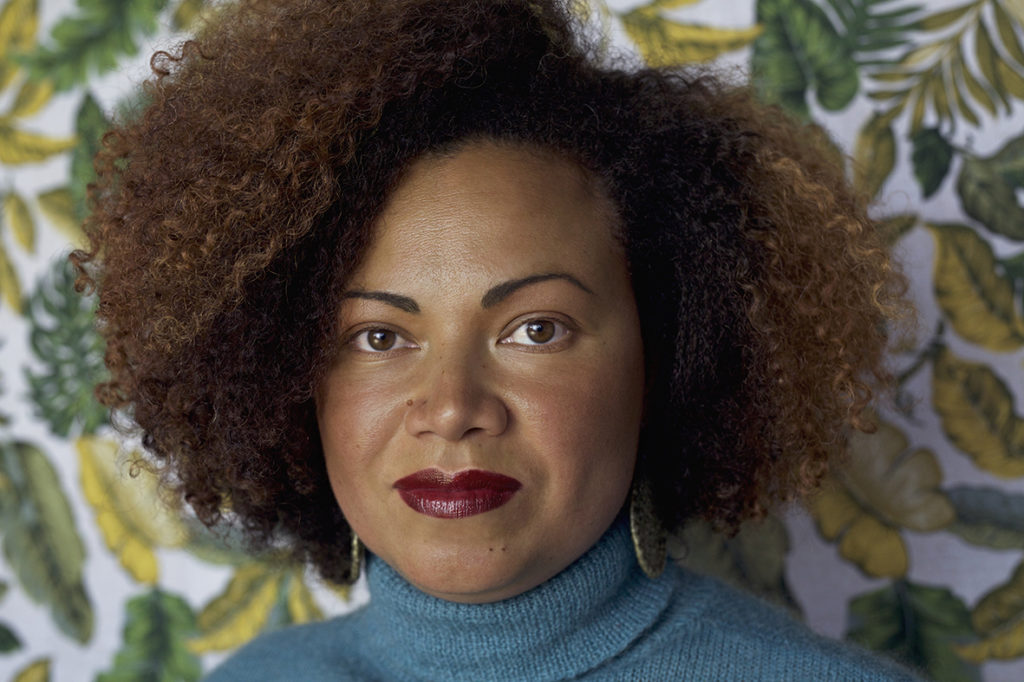
LISA HILLI
Lisa Hilli is a contemporary artist living in Naarm (Melbourne). Through her practice she explores themes of gender and body politics, colonial history in Melanesia, adornment, matrilineality and indigeneity through the mediums of photography, video, textiles and installation. She has been commissioned for the Institute of Modern Art Brisbane and most recently an acquisitive commission for the Australian War Memorial looking at shared war history between Australia and Papua New Guinea from the Second World War. Lisa is a member of the Oceania Working Party for the Australian Dictionary of Biography and an advisor for the School of Art, RMIT University. Lisa currently works at Museums Victoria in exhibitions as an Experience Developer.
Photo by Atong Atem
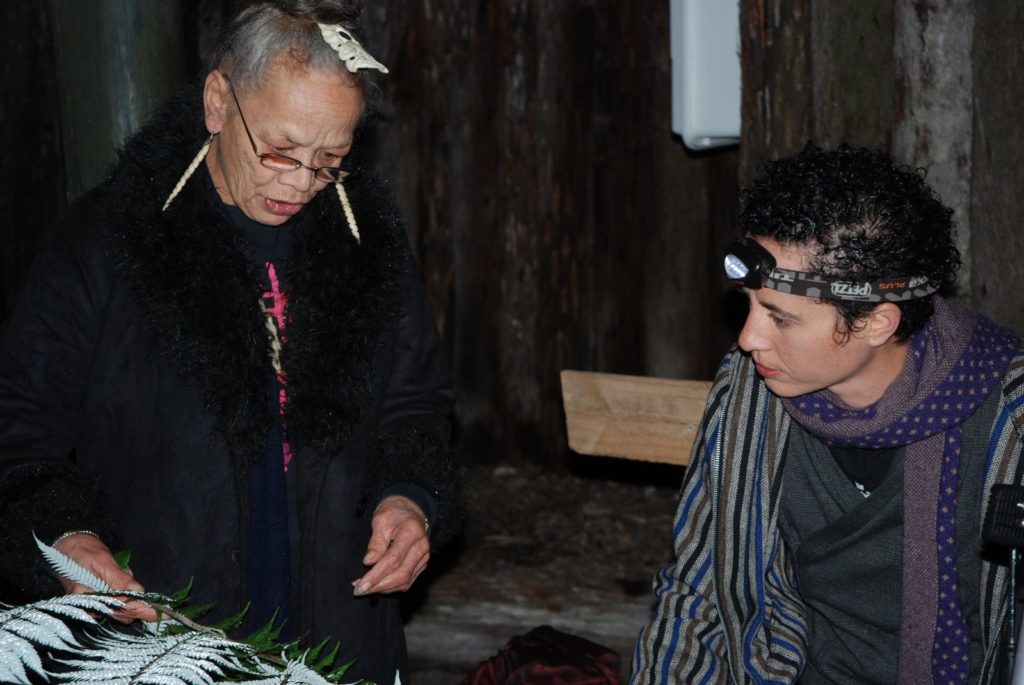
VICTORIA HUNT
Victoria was born on Yugambeh Country, Surfers Paradise, Queensland, Australia. She currently lives on the unceded lands of the Gadigal people of the Eora Nation (Sydney). Victoria is a queer interdisciplinary indigenous-Maori artist working as a dancer, director, choreographer, performance installation artist, photographer, film maker and Body Weather practitioner. Victoria moves in between numerous educational and heritage institutions.
Victoria’s ancestral affiliations are with Te Arawa, Ngāti Kahungunu, Rongowhakaata, English, Irish and Finnish. She works to reinstate the power of Indigenous creativity through unravelling the complexities Indigenous people face within the politics of recognition, respect, responsibility, rematriation and remembrance. Central to this is the honouring of whakapapa (ancestral lineages) and the revitalization of Mana Wahine and Atua Wahine knowledge and practices (Maori feminism, feminine knowledges). Their work is a gradual binding of intimate collaboration between artists, elders and communities.
Since 2000 Victoria has worked with Body Weather pioneer Tess de Quincey as a founding member of De Quincey Co. performing in over 40 company productions. She is the recipient of numerous awards, residencies, fellowships and her work has travelled nationally and internationally to critical acclaim. She has received guidance and support from Charles Koroneho, Fiona Winning, Margot Nash, Barbara Campbell, the Hunt whanau and many others.
Her most recent work TANGI WAI… the cry of water premiered at Liveworks Festival (Performance Space, Carriageworks, 2015) and Dance Massive (Arts House, Melbourne, 2017) to critical acclaim, receiving nominations for an Australian Dance Award, Helpmann Award, three Green Room Awards, receiving Best Visual Design in Dance. Her collaborative dance solo COPPER PROMISES: Hinemihi Haka premiered at Liveworks Festival (Sydney, 2012) and was nominated for a Helpmann Award for Best Female Performer in Dance, then toured to Origins Festival, The Place (UK 2013), IMPACT15 (CA, 2015), PuSh Festival (Vancouver), National Arts Centre (Ottawa) and Public Energy (Peterborough) in 2019. Her work Day of Invigilation and Dancing with the Dead: A performed conversation with Fiona Winning has also been presented at Ecocentrix: Indigenous Arts, Sustainable Acts (Southbank/UK), In-between Time Festival (Bristol/UK), Scène Contemporaine Autochtone, Festival TransAmériques Arts Centre (Montreal/CA). She is one of six artists featured in the 1st edition of BAC Madrid – Biennale of the Arts of the Body, Image and Movement 2019-21.
Victoria has performed with MAU (Aotearoa/NZ) in REQUIEM which toured to LIFT – London International Festival of Theatre (UK), New Crown Hope Festival (Vienna/AUS), KVS Theatre (Brussels/BE), Pasifika Festival, Aotea Centre and Sky City (Aotearoa/NZ) 2006-07.
She has directed a short film, TAKE in collaboration with producer/editor Margot Nash. This film won the Mana Whenua award at the Wairoa Maori film festival. Screenings: New Zealand International Film Festival: Auckland and Wellington; Maoriland, Wellington NZ; Sydney International Film Festival; Wairao Maori Film Festival; Asia Pacific Women In Film Festival, Australia; ImagineNATIVE Media Arts Festival, Toronto, Asinabka Festival, Canada; 50th Tampere Film Festival, Finland; Antenna Documentary Film Festival Sydney; BIAFF Batumi International Art House Film Festival; Rotorua Indigenous Film Festival, NZ; First Nations led Biennale of Sydney – NIRIN 2020.
Victoria is currently supporting a number of youths, emerging and established artists to develop their body-based hybrid performance practices.
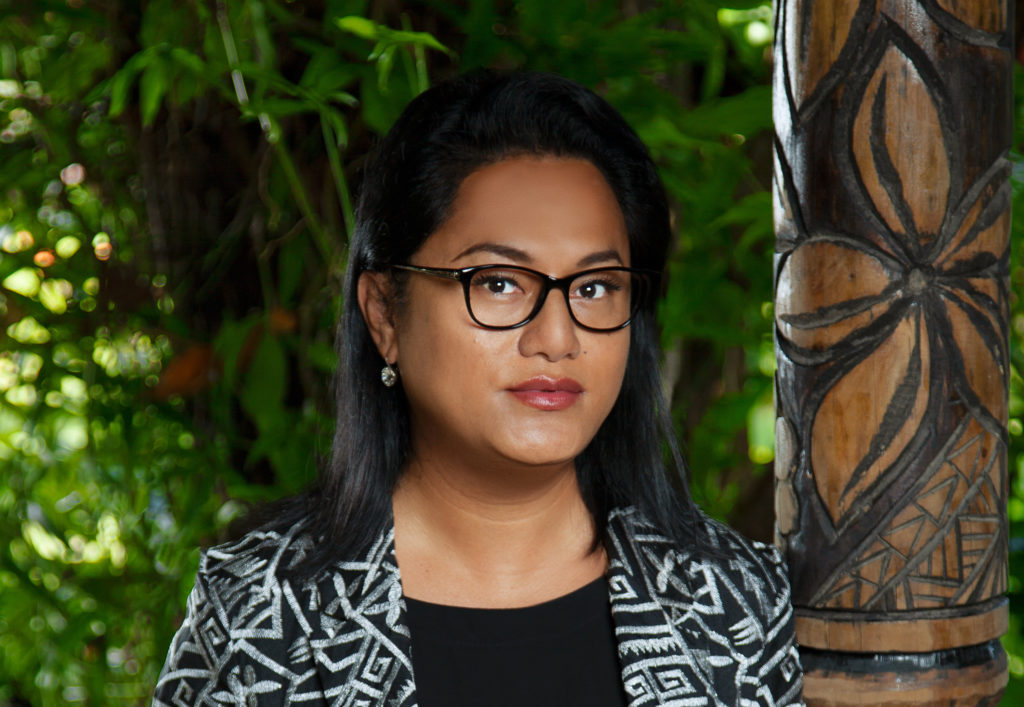
YUKI KIHARA
Yuki Kihara is an interdisciplinary artist whose work has been presented in international exhibitions at The Metropolitan Museum of Art, New York (2008), and the biennales of Honolulu, Bangkok and the Asia Pacific Triennial, amongst others. Kihara is representing Aotearoa New Zealand at the 59th Venice Biennale and she is a research fellow at the National Museum of World Cultures, The Netherlands. She lives and works in Sāmoa.
Photo by Evotia Tamua

NATALIE KING
Natalie King OAM is a curator, writer and Enterprise Professor of Visual Arts at the University of Melbourne. She is curator of Aotearoa New Zealand pavilion, 59th Venice Biennale 2022 with artist, Yuki Kihara. In 2017, she was Curator of Tracey Moffatt: My Horizon, Australian Pavilion at 57th Venice Biennale. Natalie has curated exhibitions for the Singapore Art Museum; the National Museum of Art, Osaka; Tokyo Museum of Photography; National Gallery of Indonesia, Jakarta; and the Museum of Contemporary Art, Sydney, amongst others. She is President of the International Association of Art Critics, Paris.
Photo by Giulia McGauran
SUTANTO MENDUT
Sutanto Mendut is a renowned musician, artist, philosopher, lecturer, journalist, cultural leader and instigator of Festival Lima Gunung (Five Mountains Festival), a community-based, fiercely independent festival from the mountain areas north of Yogyakarta, Indonesia. Over the last two decades, the festival has fostered new connections between customary and contemporary genres in the region.Sutanto: “Lima Gunung is a community with three fundamental obsessions. The first is ‘insan’ or human being: the background of a person is not important, whether they are Moslem, Catholic, Javanese, from New York or Japan, Kilimanjaro, mountain people or rural villager… what is important is the meeting of those people. Second is to understand the connection between human and nature: nature is our stage… Thirdly, nature for us is the interconnection between civilisation and the human.”
NURAINI JULIASTUTI
Nuraini Juliastuti is co-founder of KUNCI Cultural Studies Center, in Yogyakarta, Indonesia, established in 1999. Her research interests are situated between contemporary art production, digital culture, the making of commons, and performance of participation. Nuraini’s research writings have been widely published in Indonesia and internationally. In collaboration with KUNCI, she has produced a body of research works, which use publication, exhibition/presentation, and gathering as modes of intellectual and political engagement.
Nuraini has recently developed her own publication-based project titled Domestic Notes that uses domestic and migrant spaces as sites to discuss everyday politics, organisation of makeshift support systems, and alternative cultural production. With Kunci, she is working on The School of Improper Education (2016–2019), which represents Kunci’s latest conceptualisation of alternative education, artistic practices, and social activism.
FRIDAY 6th NOVEMBER
HELLY MINARTI
Helly Minarti was born and grew up in Jakarta. She works as an independent, itinerant scholar/curator, rethinking radical strategies to connect practice and theory rooted within performing arts context. She is particularly interested in historiographies of choreography as discursive practice vis-a-vis the eclectic knowledges that infuse the understanding of human body/nature. Her most recent curatorial project is Jejak-旅 Tabi Exchange: Wandering Asian Contemporary Performance, an exchange platform that takes the format of a travelling festival. Helly earned a Ph.D in dance studies from University of Roehampton and has relocated to Yogyakarta where she is preparing to launch LINGKARAN | koreografi, a collaborative research platform aiming to expand the critical notions of choreography beyond its dance realm.
TAMARRA
Tamarra (b. Tasikmalaya, West Java, 1989), is a self-taught artist who is now studying at the University of Sanata Dharma, Yogyakarta, majoring in history. Tamarra moved to Yogyakarta in 2008 and worked as street busker until 2013. Between 2011-2013, Tamarra joined an arts project titled Makcik Project which initiated a personal work in the filed of visual arts. Tamarra’s works discusses the issues of gender and sexuality, the histories of transgender in Indonesia, religion and humanity. Tamarra has been involved in various arts projects and exhibitions, among them (selected): Ancient MSG (2015) at Gertrude Contemporary, Australia, Unsung Museum (2016-2017) at Roh Projects in Jakarta and Ruang Gerilya (Bandung); ‘Calabai Janggeng’, a collaborative research presentation with Emma Frankland on Bissu, commissioned by British Council 2019. This ongoing research above is supported by Cemeti: Institute for Arts and Society.
GINOE OJOY
Ginoe (b. 1995, Silay) is a young creative based in Silay City, Negros Occidental, Philippines. He is one of the co-founders of Glucose Zine and Syrup Artfest. He also runs a curatorial initiative called Sachet Projects and an informal image bank of local ephemera called Sachet Archives. He is part of a design duo called Gijo-focusing on experimental multi-media work both in print and digital. Using ink, fabric, construction materials, and found objects, Ginoe’s practices fuse the sensibilities of pop and sequential art that are oftentimes bold and playful yet tempered by underlying tensions of the personal.
MARK TEH
Mark Teh is a performance maker, researcher, and curator based in Kuala Lumpur, Malaysia. His diverse, collaborative projects address the issues of history, memory, counter-mappings, and urban contexts – often taking on documentary and speculative forms. His practice is situated primarily in performance, but also operates via exhibitions, education, social interventions, writing, and curating. His projects have recently been presented at MAIIAM Contemporary Art Museum, Chiang Mai (2020), Salihara, Jakarta (2019), Tokyo Metropolitan Theatre (2019), Yamaguchi Center for Arts and Media [YCAM] (2019), TPAM, Yokohama (2019), BIPAM, Bangkok (2018), OzAsia Festival, Adelaide (2018), Fast Forward Festival, Athens (2018), MMCA Seoul (2018), SPIELART Festival, Munich (2017), Haus de Kulturen der Welt, Berlin (2017), and Bangkok Arts & Culture Centre (2017), amongst others. Mark graduated with an MA in Art and Politics from Goldsmiths, University of London. He is also the coordinator and a member of Five Arts Centre, a collective (formed in 1984) of interdisciplinary artists, producers and activists in Malaysia.
IRIANO YEDIJA PETRUS AWOM
Iriano Yedija Petrus Awom has been a lecturer at the Faculty of Literature and Culture of Papua University in Manokwari, West Papua, Indonesia since 2009. He is now pursuing his doctoral degree at Sanata Dharma University, Yogyakarta, focusing on cultural studies (a study of art and community). His field of study and specialty is literature and popular culture (music). He has participated and become speakers in several local and international seminars such as Konferensi Internasional Masyarakat Linguistik Indonesia (KIMLI) in 2018, Australian Anthropological Society (AAS) in 2018 and Seminar at the National Literature Day at University of Cenderawasih, Papua in 2020. He is also a writer or journalist in Indonesian reggae-based web magazine ‘Kultur’ (https://kultur.media/). Some of his academic articles have been published in local journals. Apart from being an academic and writer, he plays with his reggae band, ‘Papua Roots’. He has released two singles on digital platforms (Spotify, Apple, Amazon) and is now working on his EP album entitled ‘Children of the nation’.